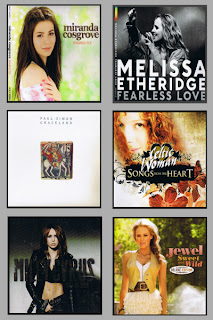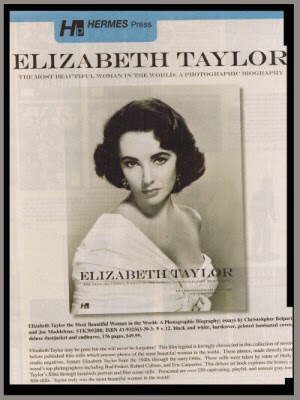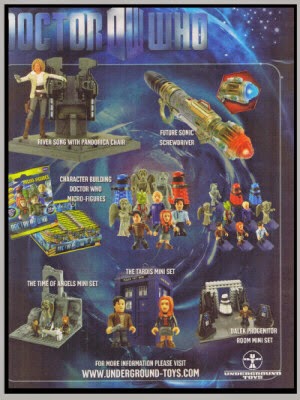
I urge you to oppose the “Performance Rights Act”.
This legislation (H.R. 848/S. 379) would harm local free radio by imposing an unreasonable fee on local radio stations, undermining their ability to present news, information and music.
Free "over-the-air" radio has been and should continue to be a vital communication and entertainment staple in the United States. Many people rely on radio for up-to-the-minute local news and weather. In addition, free radio is a viable venue for political awareness and community outreach. Plus, in times of great emergency people tune first to their radio!
If the 'Performance Rights Act' is passed, We The People lose the integrity of one of our oldest cultural staples.
For generations, Americans have loved listening to their favorite radio station. Radio is more than music, it is a means by which ideas and cultures are shared without regard to geography or politics or price of admission. But now, some major record companies want local radio stations to pay for the music provided to listeners.
They are spending millions lobbying Congress to pass legislation that would establish a performance tax for music played over the radio. These bills, would devastate local radio stations across the country. Having to pay for the right to play music will reduce the availability of over-the-air music and inhibit station formats. More, the record companies would lose a valuable source of promotion – their shooting themselves in the foot!
If the performance tax is signed into law, it will put at risk an industry employing almost 106,000 people and generating more than $6 billion for communities through free air-time for Public Service Announcements, charitable contributions and disaster relief efforts.
As playing music would become a major business expense, stations will be forced to choose economic certainty over economic potential, established artists over emerging talent. As a result, radio listeners and advertisers will be short-changed!
If the federal government imposed a performance tax or “Listener’s Tax,” there would no fair way to determine the expense.
For many decades, local radio has helped the music of unknown artists reach our ears, launching the careers of everyone from Elvis and Johnny to U2 and Britney Spears. More importantly, radio has a critical role in times of danger and disaster, informing a concerned populace. And, radio is a valued source of community outreach, supporting neighborhoods, charities and issues of interest.
Certain record companies want all that to change and they want us, the listeners, to pay the bill! Local radio stations already compensate songwriters for the use of their music. Stations provide billions of dollars in free promotion. And, they pay a fee to stream their programming over the Internet. Still, these record companies want more!
Across the nation, radio stations are struggling to stay afloat in a worsening economic climate. Billions of dollars and hundreds of thousands of jobs are being threatened to sate the insatiable greed of certain record companies.
Free Radio is a coalition of people and organizations whose mission is to keep radio and other businesses that play recorded music strong for communities across the nation by opposing a performance tax.
The Recording Industry Association of America (RIAA) and certain record companies are behind a proposal to impose a performance tax. Such a tax would first be applied to radio stations but in a short-time it would also be applied to restaurants; retail stores; and, any other establishments or venues where recorded music is played!
They claim radio stations and other venues playing recorded music are getting a free ride but that is simply untrue! The recording industry has publicly stated it has benefitted from more than 70 years of free promotion over radio. And, they seem to be ignoring the compensatory fees already imposed upon radio stations. Much of the proposed revenue would not reach the recording artists and, because most (nearly 75%) of the record companies in the United States are foreign owned, that revenue won’t fuel domestic economy or generate tax revenue!
The record companies claim there is little need for radio in this digital age. They believe their product shouldn’t be provided via a medium consumers do not support. What they mean is, today’s music buyers aren’t purchasing CDs and they aren’t tuning in to the radio for the latest or newest tune. Today’s music enthusiast is scouring the Internet for product. Some of that assessment is quite correct; however, what the record companies aren’t revealing is they failed to prepare for the surge in digital media. They weren’t prepared for the demand of the downloading consumer, turning away from the inconvenient and inefficient CD.
And, they are not considering where today’s music buyer will first hear a complete tune – that’s right, on the radio baby! They hear it, they like it, they tag it, they buy it!
Radio stations across the country have been making their way toward digital, high definition and Internet broadcasting for several years. Station owners, program directors and musical artists have been urging record companies to move away from CDs and “approved release” of tracks for many years.
But, the record companies failed to heed that counsel; now, the ground is breaking under them – and they want us to pay for it!
Not everyone recording music and producing records is supporting the lobbying effort: Mark Wright, Senior Vice President of MCA Records, has said, “If a song’s not on the radio, it’ll never sell.” And, speaking with a reporter from WHDH-TV (March 2009), Bono said, “It’s worth remembering that U2, you know we broke in the United States through Boston, and through radio stations like BCN and stuff like that. We depend on radio.”
Local radio stations aren't trying to avoid paying a just tax. Despite what record companies claim, radio stations do pay to play music. Radio stations pay more than half a billion dollars annually to songwriters and composers for the right to play their music over-the-air. And, over-the-air radio is heard by nearly half a million listeners every day, who generate nearly three billion dollars in annual music sales!
Over-the-air radio in Iowa recently played an invaluable role during a crisis. Stations across the state remained on-the-air during massive flooding, providing news, support and comfort to devastated communities. Many of the people working at the station, including those on-air personalities, remained at work while their own homes [and even the very station from which they were working] was threatened by flood waters!
Artists who have made their name on local radio have been unfairly compensated by record companies. It is not the responsibility of radio stations or their listeners to rectify that injustice nor are they responsible for ensuring such injustice does not occur again. If Congress is truly interested in ensuring artists are being paid fairly, it should start with the artists’ employers – the record companies!
Radio stations across the country are united in their opposition to this legislation and they, like me, urge you to join us in that opposition.
Send a message to Congress, oppose "The Performance Rights Act".
Keep radio free!
SPEAKING FRANKLY by Lewis Franklin
adapted and augmented from material provided by the Free Radio Alliance
some content was compiled and sent to Members of Congress
13 May 2009
 Miranda Cosgrove – “Sparks Fly” (2010): Music is often over-engineered, drowning the youthful voice; however, tracks like “Kissin’ U”; “BAM”; “Hey You”; “There Will Be Tears”; “Adored” and “Beautiful Mess” make it clear this kid has talent. With a bit of experience she’ll grow into the emotional sincerity that is often missing in her voice. Grade – B
Miranda Cosgrove – “Sparks Fly” (2010): Music is often over-engineered, drowning the youthful voice; however, tracks like “Kissin’ U”; “BAM”; “Hey You”; “There Will Be Tears”; “Adored” and “Beautiful Mess” make it clear this kid has talent. With a bit of experience she’ll grow into the emotional sincerity that is often missing in her voice. Grade – B
















